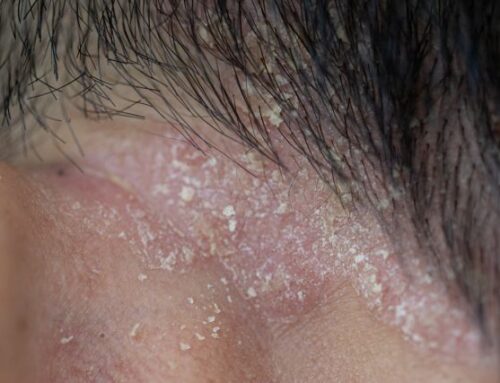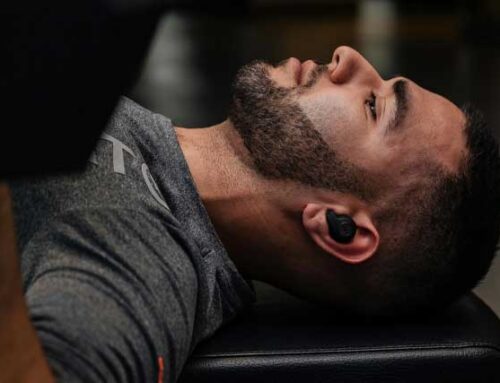Medication-Related Hair Loss: Options for GLP-1 Patients
In recent years, medications like Ozempic and other GLP-1 agonists have gained popularity for their effectiveness in managing diabetes and promoting weight loss. However, an unexpected side effect has emerged: hair loss. This article will explore several of the main factors associated with medication-related hair loss, and more importantly, discusses innovative hair restoration options for those affected.
Understanding the Link Between GLP-1 Medications and Hair Loss
GLP-1 (Glucagon-Like Peptide-1) receptor agonists, including Ozempic (semaglutide), Wegovy, and Mounjaro, have revolutionized the treatment of type 2 diabetes and obesity. These medications work by mimicking a hormone that regulates blood sugar and appetite. However, some patients have reported experiencing hair thinning or loss while using these drugs.
The exact mechanism behind this hair loss isn’t fully understood, but it’s believed to be related to rapid weight loss and potential nutritional deficiencies. When the body undergoes significant changes, such as rapid weight loss, it can trigger a condition called telogen effluvium. This temporary form of hair loss occurs when hair follicles prematurely enter the resting phase of the growth cycle.

Recent Studies on GLP-1 Medications and Hair Loss
Research into the connection between GLP-1 medication-related hair loss is ongoing. A recent study published in the International Journal of Dermatology in 2024 highlighted the need for further investigation into this potential side effect. The study noted that while clinical evidence directly linking GLP-1 agonists to hair loss remains limited, the increasing number of patient reports warrants closer examination.
Another study, published in the Journal of the American Academy of Dermatology in 2024, reported cases of hair regrowth in patients who had experienced hair loss while using tirzepatide (Mounjaro). This suggests that the effects on hair may be reversible in some cases, offering hope to those affected.
Innovative Hair Restoration Options
For those experiencing medication-related hair loss, several innovative restoration options are available:
Enhanced Clinical Hair Therapy. Enhanced Hair Therapy (EHT) involves injecting a concentration of a patient’s own platelets into the scalp to stimulate hair growth. This treatment has shown promising results in promoting hair regrowth and improving hair thickness. A 2023 study in the Journal of Cosmetic Dermatology found that the treatment regimen of EHT hair therapy was effective in treating hair loss associated with various causes, including medication-induced hair loss.
Low-Level Laser Therapy (LLLT). Low-level laser hair loss treatment uses red light wavelengths to stimulate hair follicles and promote growth. This non-invasive treatment can be administered through specialized caps or combs used at home. A 2024 review in the Lasers in Medical Science journal reported that LLLT could be an effective treatment for various types of hair loss, including those related to metabolic changes.
Nutritional Support for Hair Health
While innovative treatments can help restore hair, addressing potential nutritional deficiencies is equally important, especially for those using GLP-1 medications. Here are some nutritional strategies to support hair health:
- Protein Intake. Adequate protein is vital for hair growth. Ensure your diet includes lean meats, fish, eggs, and plant-based proteins like legumes and nuts. For those on GLP-1 medications who may be eating less, consider consulting a nutritionist to ensure you’re meeting your protein needs.
- Iron and Vitamin C. Iron deficiency can contribute to hair loss. Include iron-rich foods like spinach, lentils, and lean red meat in your diet. Pair these with vitamin C-rich foods to enhance iron absorption.
- Biotin and Other B Vitamins. Biotin, also known as vitamin B7, is often touted for its hair health benefits. While biotin supplements are popular, it’s best to obtain it through a balanced diet including eggs, nuts, and sweet potatoes. Other B vitamins, particularly B12, are also important for hair health.
- Omega-3 Fatty Acids. These healthy fats support scalp health and may help reduce inflammation that can contribute to hair loss. Good sources include fatty fish, flaxseeds, and walnuts.
- Zinc and Selenium. These minerals play a role in hair growth and repair. Include foods like oysters, beef, and pumpkin seeds in your diet to ensure adequate intake.
While nutritional strategies can support hair health, it is of paramount importance to consult with your healthcare provider before making any significant changes to your diet or starting any supplements, especially if you are taking GLP-1 medications like Ozempic. Self-medication not only has the potential to interfere with your prescribed treatment, but also to lead to serious and unexpected side effects. Your healthcare provider can offer personalized advice, taking into account your specific medical history, current medications, and overall health status to ensure any interventions for hair health are safe and can potentially be effective for you.
Lifestyle Factors for Hair Health
In addition to nutrition and innovative treatments, certain lifestyle factors can support hair health:
- Stress Management. Chronic stress can exacerbate hair loss. Incorporate stress-reduction techniques such as meditation, yoga, or regular exercise into your routine.
- Gentle Hair Care. Avoid harsh treatments and excessive heat styling. Use a mild shampoo and conditioner, and be gentle when brushing or styling your hair.
- Regular Scalp Massage. Gently massaging your scalp can increase blood flow to hair follicles, potentially stimulating growth. Consider using a scalp massage tool or your fingertips to massage your scalp for a few minutes each day.
- Get Adequate Sleep. Quality sleep is important for overall health, including hair health. Aim for 7-9 hours of sleep per night to support your body’s regenerative processes.
The Future of Hair Restoration for Medication-Related Hair Loss
As research into GLP-1 medications and their effects on hair continues, we can expect more targeted treatments to emerge. Scientists are exploring the potential of tailored gene therapies and personalized treatments based on an individual’s genetic makeup and specific cause of hair loss.
One area of particular interest is the development of topical formulations that can counteract the effects of GLP-1 medications on hair follicles without interfering with the drugs’ primary benefits. These could potentially be used alongside GLP-1 medications to prevent hair loss from occurring in the first place.
Get Personalized Answers to Your Hair Restoration Concerns
While hair loss associated with GLP-1 medications like Ozempic can be distressing, it is important to remember that there are innovative hair loss solutions available that have been clinically proven to help stop the progression of hair loss and in many cases reverse hair loss in both men and women.
If you’re experiencing hair loss while using GLP-1 medications, it’s important to discuss your concerns with your healthcare provider. They can help you weigh the benefits of the medication against the side effects and explore appropriate hair restoration options.
Hair Restoration & Hair Loss Treatment in McLean, Virginia
Recognizing and addressing hair loss and taking steps for early intervention can help preserve existing hair follicles and potentially stimulate regrowth before the hair loss becomes more extensive or permanent. By seeking professional advice and starting appropriate treatments early, you significantly improve your chances of maintaining a fuller, healthier head of hair and preventing further progression of hair loss.
For personalized advice and to learn more about the latest hair restoration treatments available, we invite you to schedule a private, complimentary consultation with one of our hair loss treatment specialists at our McLean, Virginia clinic. Our experts can answer all of your questions fully, and provide tailored recommendations based on your specific situation and help you navigate a clear path to hair regrowth and renewed confidence.
Further Reading
- GLP-1 agonists and hair loss: a call for further investigation
- Treatment of insulin resistance with tirzepatide leading to improvement of hair loss
- Low-level laser therapy for the treatment of androgenetic alopecia in men and women
- Adipose-derived stem cells for hair regeneration: A systematic review
DISCLAIMER:
The content on this website is for general informational purposes only and is not intended to be a substitute for professional medical advice, diagnosis or treatment. Always consult with a qualified and licensed physician or other medical care provider and follow their advice without delay regardless of anything read on this website.



